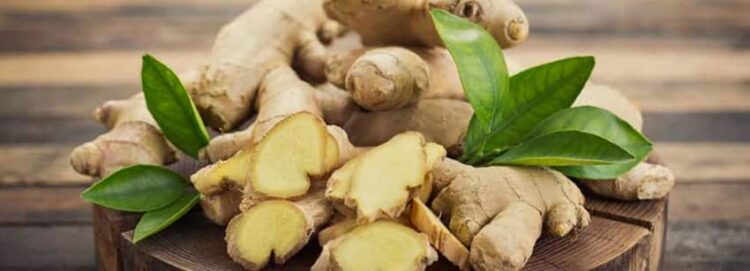As the flu season continues, our traditional rhizome known as ginger may provide some relief. It contains anti-viral and anti-inflammatory compounds such as gingerol and shogaol. Ginger extract has been shown in studies to inhibit the replication of the influenza virus. Furthermore, ginger stimulates the immune system, which is necessary for fighting infections. Several patients have reported relief from flu symptoms after using dry ginger powder.
Since the Vedic period, ginger has been widely used for its medicinal properties. It is thought to have originated in southern Asian tropical rainforests, including India and China, and was traded as a valuable commodity along ancient spice routes to the Middle East. . This is borne out by the numerous references of ginger in Ayurveda and ancient Chinese medicine texts for its versatility and numerous health benefits. But it is just as efficacious for our times, plagued as we are by chronic illnesses.
Cardiovascular health: Chronic inflammation has been linked to the development of atherosclerosis, or heart vessel clogging, which increases the risk of heart attacks and strokes. The anti-inflammatory properties of ginger lower the risk of cardiovascular disease by reducing inflammation, improving blood flow, reducing platelet aggregation, and widening blood vessels. Ginger’s anti-inflammatory properties have been shown in studies to work similarly to nonsteroidal anti-inflammatory drugs (NSAIDs). They stop the action of several genes that are involved in the inflammatory process. Researchers gave rats a low dose (50 mg/kg) and a high dose (500 mg/kg) of ginger extract for four weeks in a placebo-controlled animal study. They discovered that rats given a higher dose of ginger extract orally had a statistically significant decrease in blood-clotting factors and cholesterol levels, as compared to the placebo group. They also had a reduction in inflammation markers. So, it has a cholesterol-lowering and blood thinning property. Studies at Cornell University point specifically to gingerols as preventing abnormal blood coagulation.
Diabetes and kidney health: Ginger’s anti-oxidative and anti-inflammatory properties can help to prevent the development of diabetes and kidney disease. Ginger supplementation has been shown to improve oxidative stress and inflammation markers in Type 2 diabetes patients. Its extract has been shown to improve kidney function in rats with diabetic nephropathy, a type of kidney disease that develops as a result of diabetes. Researchers from the University of Sydney in Australia discovered that gingerols – the active component of ginger – can increase glucose uptake into muscle cells without the use of insulin, thereby aiding in blood sugar management. Researchers reported in the European Journal of Pharmacology (2009) that two different ginger extracts, spissum and an oily extract, interact with serotonin receptors to reverse their effect on insulin secretion. Treatment using the extracts led to a 35 per cent drop in blood glucose levels and a 10 per cent increase in plasma insulin levels.
Gut health:
Ginger’s anti-inflammatory properties can help with a variety of digestive symptoms, including nausea, vomiting, and diarrhea. Ginger can also help with digestion and nutrient absorption by increasing the production of digestive juices and enzymes.
When should you not use ginger? Ginger should be avoided during pregnancy because it can interact with certain medications, such as blood thinners. Ginger may also increase the risk of gall bladder contractions in some people and should be avoided. Before consuming ginger, it is critical to consult a certified nutritionist, especially if you have any medical conditions or are taking medications.
How to make a rejuvenating health drink with ginger?
One of the simplest ways to increase ginger consumption is to drink a daily ginger juice shot or tea, either in the morning or at bedtime. Ginger is also a simple ingredient to incorporate into a wide range of recipes, from sweet to savory.
Source:IE







 Finance
Finance







